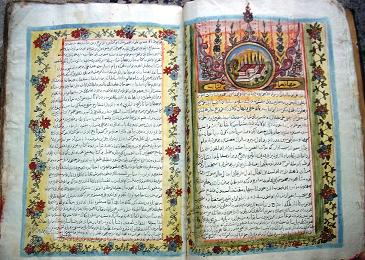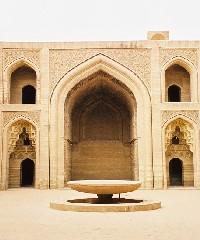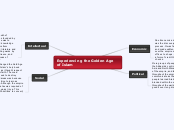Experiencing the Golden Age of Islam
Economic
One Economic advancement in the Gold Age of Islam was the discovery of the Chinese papermaking process. It was faster than parchment or papayrus, and made written words easier to access. People all over the empire started to use paper, from government offices to shops. Even business was conducted using a form of credit that is equivalent to modern day checks.

Political
More groups of people came under Islamic control as the Abbasids continued to sweep across Southwest Asia and North Africa. Arabic was the official language of the empire, and Islamic law was universal throughout the empire. It became easier to communicate as the empire expanded and more people learned Arabic, and the different culture blended within the empire. This increased trade throughout the world and exchanged information and goods over long distances.

Intellectual
One attribute of the Gold Age was the growth of intellectuality. The House of Wisdom was founded by Al-Ma’mum in Baghdad. Its main purpose was to translate great amounts of literature and knowledge into Arabic. This attracted many scholars from surrounding continents. They preserved literature and works of history by copying and translating works by many great thinkers of ancient Persia, Greece, and Rome. They contributed greatly in the areas of science, mathematics, and philosophy.

Social
One aspect that developed and changed the Gold Age was the social life of the people. Islam’s holy book was a big factor for many people, as it taught respect for knowledge and people of other faith. The main reason why the Muslims did not seek to destroy people and poverty in conquered areas was because their Qu’ran encouraged them to strice to learn as much as possible throughout life. Although the empire did not force Islam upon people, a tax was required of non-Muslim people. This was known as jizya. This would sometimes drive Jews and Christians to convert, just so they could avoid the tax.

